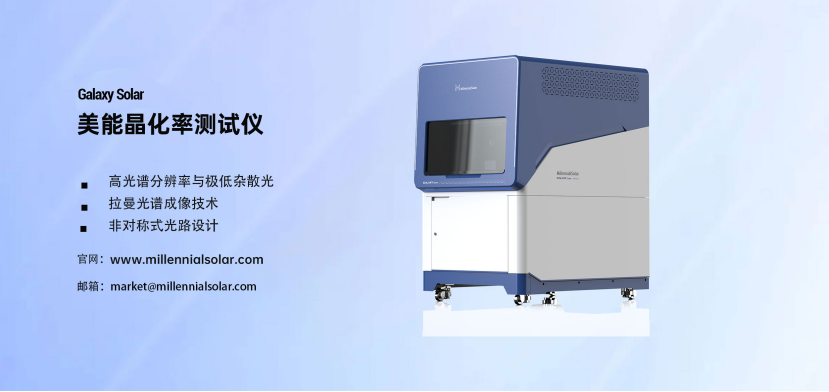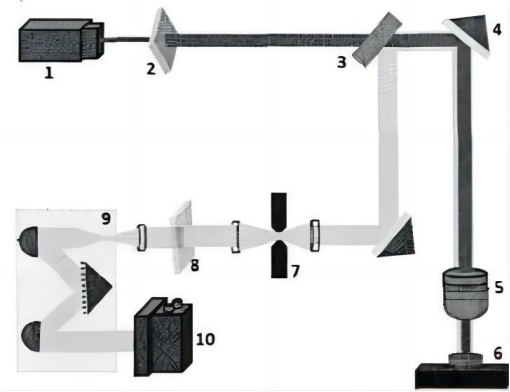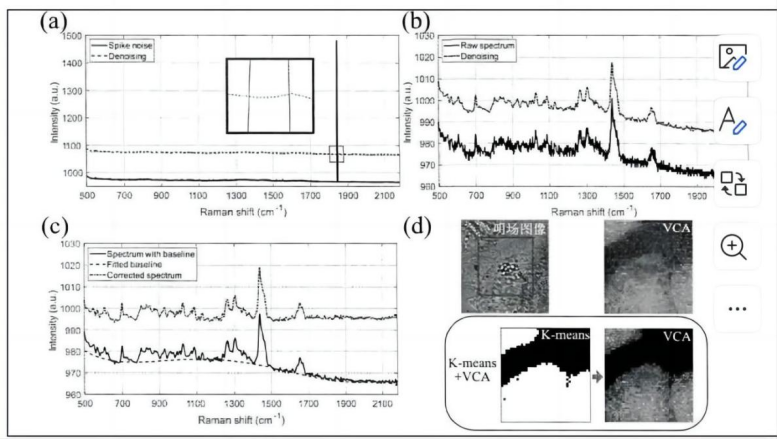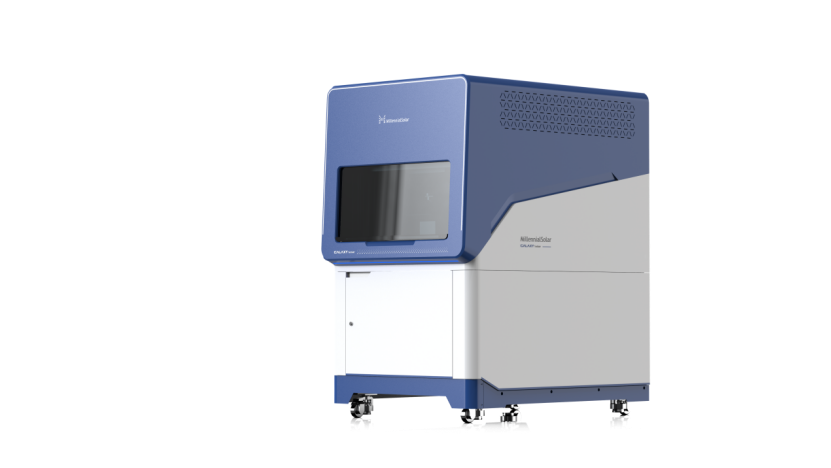
量子效率测试仪
PL/EL一体机
Sinton硅片少子寿命测试仪
Sinton硅块少子寿命测试仪
绒面反射率测试仪
3D共聚焦显微镜
在线四探针方阻测试仪
全自动扫描四探针方阻测试仪
在线薄膜厚度测试仪
晶化率测试仪
Horiba显微共焦拉曼光谱仪
傅里叶红外光谱仪
霍尔效应测试仪
分光光度计
全光谱椭偏仪
Horiba椭圆偏振光谱仪
TLM接触电阻率测试仪
超景深显微镜
网版智能影像测量仪
全自动影像测量仪
卧式拉力机
电池片稳态光衰老化试验箱
电池片紫外老化试验箱
电池片拉脱力综合测试仪
外观检验台
湿漏电测试系统
组件实验室EL测试仪
紫外老化试验箱
稳态光衰老化试验箱
电流连续性监测系统
PID测试系统
旁路二极管测试系统
LeTID测试系统
反向电流过载系统
脉冲电压测试系统
绝缘耐压测试仪
接地连续性测试仪
绝缘耐压接地测试仪
湿热环境试验箱
湿冻环境试验箱
热循环试验箱
动态机械载荷测试机
静态机械载荷测试机
冰雹冲击试验机
引出端强度试验机
霰弹冲击试验机
抗划伤(切割)测试机
剥离试验机
万能材料试验机(单臂)
万能材料试验机(双臂)
光伏玻璃透过率测试仪
醋酸测试试验箱
交联度测试系统
二极管接线盒综合测试仪
落球冲击试验机
半自动四探针
全自动探针式台阶仪
多通道太阳能MPPT系统
Horiba稳瞬态荧光光谱仪
大面积钙钛矿方阻椭偏二合一测试仪
大面积钙钛矿影像显微二合一监测站
钙钛矿P1激光划线测试仪
钙钛矿在线PL测试仪
钙钛矿在线方阻测试仪
钙钛矿在线膜厚测试仪
钙钛矿工艺检测工作站
手持式IV测试仪
便携式EL测试仪
手持热成像测试仪
户外组件多通道测试系统
光伏逆变器电能质量测试仪
无人机EL检测仪
IV测试仪
IVEL分选机
美能晶化率测试仪:拉曼光谱成像技术在HJT工艺中的应用与优化
日期:2024-06-28浏览量:545
拉曼光谱成像主要用于获取物质的化学信息及其空间分布。美能晶化率测试仪通过高光谱分辨率和低杂散光光谱仪,大幅提升了拉曼光谱成像的质量和速度,确保数据的准确性和重复性。该设备支持HJT工艺,通过优化工艺参数和精确控制硅薄膜的晶化率,提高电池效率和钝化效果。

拉曼光谱成像对提高成像质量和速度的影响
拉曼光谱是一种无损、无标记、高灵敏的物质化学信息表征手段,而拉曼成像则是探知化学信息在物理空间分布状态的功能性成像技术。
使用拉曼成像技术来成像样品时,不需要对样品进行额外的预处理。拉曼成像获取的多维高(超)光谱数据集通常包含着几百、几千甚至是百万数量的相互独立且含有空间位置信息的拉曼指纹光谱。对于简单的单层样品,拉曼成像最终获取的数据是三维的,二维平面空间加上第三维的散射光波长信息,即空间坐标信息加上物质光谱信息,高维的拉曼成像数据一般称之为拉曼光谱数据集。

扫描拉曼成像系统光学设计及超光谱数据集结构示意图
拉曼光谱处理与分析
虽然拉曼光谱与物质的化学特性息息相关,高灵敏的拉曼光谱可以用来表征物质的化学信息,但是实际上具有相似化学结构的样品的光谱特征差异很小,要区分这些差异需用到不同光谱分析方法。
拉曼光谱相关数据分析与处理的主要过程与方法。拉曼光谱的预处步骤主要有:去除尖峰噪声、去除高斯热噪声 、光谱基线 校正和光谱归一化 (Spectral normalization) 等。拉曼光谱的单变量分析是指,拉曼光谱蕴含着样品的分子指纹信息,即拉曼光谱中的每一个光谱特征峰与特定的化学基团相对应,将拉曼光谱数据集中表示化学特异性的一层或者几层提取出来用以代替庞大的光谱数据集所包含化学系的分析方式即是单变量分析法。

拉曼光谱与拉曼成像数据的处理与分析示例
美能晶化率测试仪可同时适用于光谱和成像,具有高光谱分辨率、极低杂散光的光谱仪保证光谱数据的准确性和重复性,可极大地提升了拉曼光谱成像的质量和速度,有效提炼光谱信息。
HJT晶化率测试的功能主要体现
提高电池效率:通过晶化,可以减小非晶硅与单晶硅间的带隙失配,并调整势垒高度,帮助少数载流子顺利跃迁。
改善钝化效果:在HJT电池中,非晶硅层具有良好的钝化效果,能够避免电极与硅基体的直接接触,从而减少界面复合和表面复合损失,进一步提高电池性能。
优化工艺参数:通过晶化率测试,可以精确控制通入硅烷与氢气的稀释率,以实现更高比例的氢气,从而提高硅薄膜的晶化率。同时,引入VHF电源代替传统的RF电源,有助于提高微晶薄膜的沉积速率。
美能晶化率测试仪

美能晶化测试有强大的适应HJT晶化率测试的功能,设备针对HJT工艺独立研发和优化,可以支持过程片原位测试,以适配HJT的研发和生产,并且配备拟合软件可以一键拟合谱图的同时计算晶化率,简单直观。
紫外灵敏度:硅一阶峰的信号计数好于1000(1秒积分时间)检测条件
300 nm处量子效率高于60%,700nm处量子效率好于58%
325 nm激光器,激光功率≥12mW,低波数到≤150 cmm-1
光谱重复性:单品硅校准后,≤520±0.02cm-1
拉曼光谱成像技术能无损地获取物质的化学和空间信息。美能晶化率测试仪通过高光谱分辨率和低杂散光的技术,提升了成像质量和速度,确保数据准确和重复性。此设备支持HJT工艺,优化工艺参数,提高电池效率和钝化效果,是HJT研发和生产的重要工具。









































































